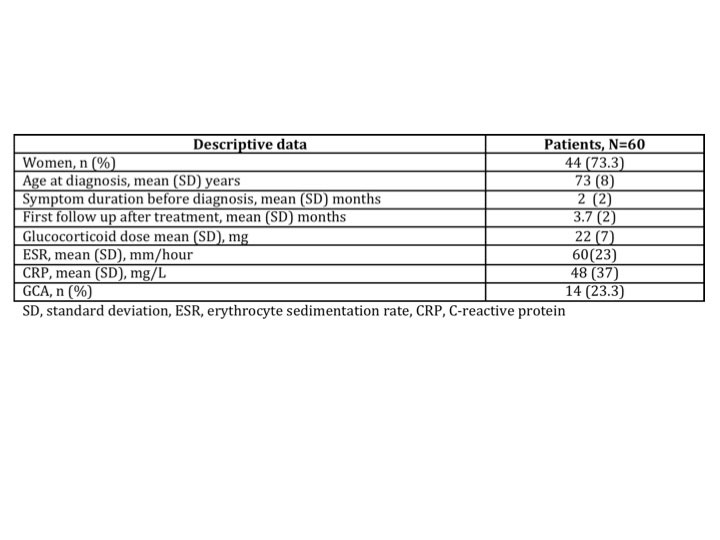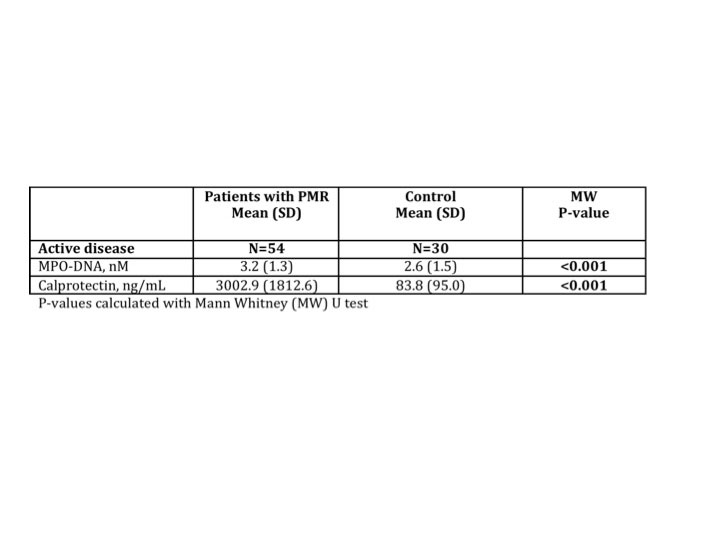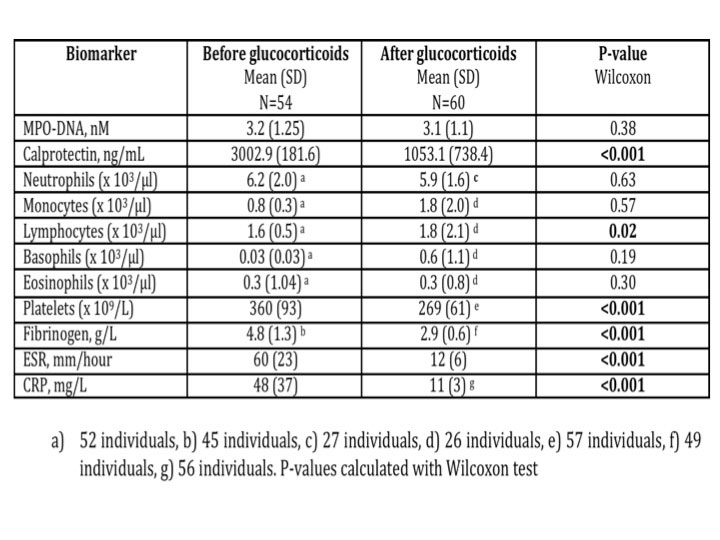Session Information
Date: Sunday, November 13, 2022
Title: Vasculitis – Non-ANCA-Associated and Related Disorders Poster II
Session Type: Poster Session C
Session Time: 1:00PM-3:00PM
Background/Purpose: Neutrophils are important in host defense. However, neutrophil activation has also been involved in the immunopathogenesis of several autoimmune diseases due to their many cytotoxic and inflammatory effector mechanisms. The purpose of this study was to assess whether neutrophil activation occurs in polymyalgia rheumatica (PMR) by evaluating circulating levels of calprotectin and neutrophil extracellular traps (NETs).
Methods: Levels of calprotectin and NETs, as assessed by myeloperoxidase (MPO)-DNA complexes, were measured in the plasma of healthy individuals (n=30) and patients with PMR (n=60) using ELISA. PMR patients were enrolled at time-point of active disease, as well as following glucocorticoid therapy (Table 1).
Results: Levels of calprotectin and NETs were elevated in patients with PMR as compared to healthy subjects (Table 2). The neutrophil activation marker, calprotectin, significantly decreased after corticosteroid therapy (p< 0.001) (Table 3), and was higher in patients with active PMR without overlapping GCA compared to patients with overlapping disease (p=0.014). Interestingly, musculoskeletal involvement as defined by pain and stiffness in shoulder and pelvic girdles was associated with elevated levels of calprotectin (p=0.036) before initiation of corticosteroid therapy.
Conclusion: Neutrophil activation occurs in patients with PMR and was associated with musculoskeletal involvement. Plasma calprotectin could be a reliable biomarker of treatment response in patients with PMR. However, NETs are not a sensitive predictive biomarker for reduction of systemic inflammation in PMR.
To cite this abstract in AMA style:
Michailidou D, Johansson L, Kuley R, WANG T, Hermanson P, Rantapää-Dahlqvist S, Lood C. Increased Neutrophil Activation in Patients with Polymyalgia Rheumatica [abstract]. Arthritis Rheumatol. 2022; 74 (suppl 9). https://acrabstracts.org/abstract/increased-neutrophil-activation-in-patients-with-polymyalgia-rheumatica/. Accessed .« Back to ACR Convergence 2022
ACR Meeting Abstracts - https://acrabstracts.org/abstract/increased-neutrophil-activation-in-patients-with-polymyalgia-rheumatica/



